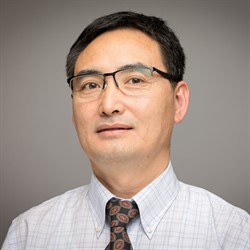Wang, Zhanxiang

Zhanxiang Wang, MD (China), PhD, LAc
Professor, Clinical Sciences
 Dr. Wang, originally from China, studied for 6 years at the Beijing University of Chinese Medicine, the country’s most prestigious traditional medicine university. There he specialized in internal medicine, including hematology and immunology.
Dr. Wang, originally from China, studied for 6 years at the Beijing University of Chinese Medicine, the country’s most prestigious traditional medicine university. There he specialized in internal medicine, including hematology and immunology.
Later, he worked at the China Academy of Chinese Medical Sciences for 12 years, where he received a PhD in integrative medicine. At the academy, he worked mainly with patients who had leukemia and immune disorders, and did several research projects, some of which were funded by national grants.
After working for a year in Sweden, Dr. Wang came to the U. S. so that he could do deeper research on conditions such as leukemia, taking advantage of more advanced technology here.
In 2002, he joined the faculty of the Indiana University School of Medicine. There he worked at the Well Center for Pediatric Research, and also in the departments of microbiology and immunology, biochemistry and molecular biology. In addition to receiving the Walther Cancer Institute award for post-doctoral research, Dr. Wang also received NIH funding for several projects as an assistant professor for research at IU.
Eventually Dr. Wang felt it was time to bring his knowledge back to the field of oriental medicine. “I looked around the country and visited schools on both the east and west coast, to find a college that would be best for oriental and integrative medicine research,” says Dr. Wang. “I found that NUHS was the best situated for such research. With its integrative medicine focus, as well as a university clinic with a steady flow of patients, NUHS has unique strengths for developing new research projects in acupuncture and integrative medicine.”
In addition to supervising students in the clinic, Dr. Wang teaches medical biochemistry, western nutrition, an introduction to oriental medicine, and two classes in diagnosis skills. He will also be teaching an evidence-based practice course next trimester. “I hope to involve students in creating foundations for real research projects in my class, not only studying existing research.”

